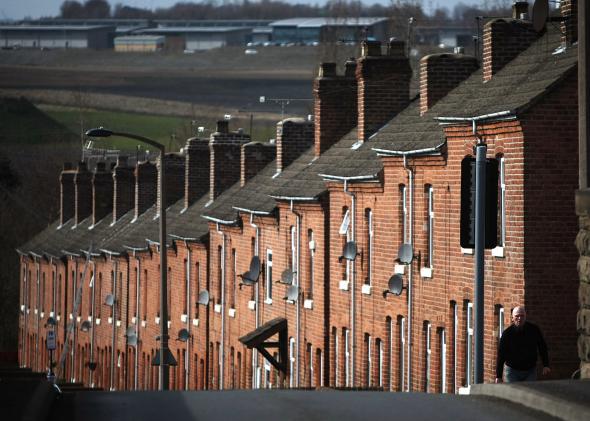As the New York Times reported Monday, between 1997 and 2013, in the northern English town of Rotherham, “at least 1,400 children, some as young as 11, were groomed for sexual exploitation while the authorities looked the other way.” The findings of an independent inquiry into child sexual exploitation in Rotherham released last week declared:
It is hard to describe the appalling nature of the abuse that child victims suffered. They were raped by multiple perpetrators, trafficked to other towns and cities in the north of England, abducted, beaten, and intimidated. There were examples of children who had been doused in petrol and threatened with being set alight, threatened with guns, made to witness brutally violent rapes and threatened they would be next if they told anyone. Girls as young as 11 were raped by large numbers of male perpetrators.
These “appalling” acts, occurring on an unimaginable scale, went on for 16 years, and, as the report notes, continue “to this day.” How could this possibly happen?
The most obvious issue is that law enforcement made little effort to address the problem. The report notes that “Police gave no priority to [child sexual exploitation], regarding many child victims with contempt and failing to act on their abuse as a crime.” It chronicles in mind-numbing detail the various investigations and task forces that achieved nothing. Indeed, the scope of the abuse—1,400 children represents 0.5 percent of Rotherham’s population—seems to have brought a kind of impunity: An earlier report on the grooming ring “was effectively suppressed because some senior officers disbelieved the data it contained.” If you want to get away with rape, raping hundreds of children is apparently a good way to do so.
Because most of the victims were white and most of the predators were from what is known in Britain as “the Pakistani-heritage community,” there may also have been a racial dimension to why more wasn’t done to stop the abuse. British Home Secretary Theresa May told Parliament that “institutionalized political correctness” contributed to authorities turning a blind eye, though as the Guardian’s Hugh Muir pointed out, given the overrepresentation of people of color in British courts and prisons, it would be “a first” if racial considerations were suddenly protecting criminals from prosecution.
I haven’t lived in the north of England for many years, but as someone who grew up there, I’m confident that class contributed to the disgraceful way the girls’ claims were dismissed. As Suzanne Moore put it:
Ethnicity is a factor but there is also a shared assumption beneath the police inaction and the council workers’ negligence: all of them deemed the girls worthless. The police described them as “undesirables” while knowing they were indeed “desired” by both Pakistani and white men for sex. They were never seen as children at all, but as somehow unrapeable, capable of consensual sex with five men at the age of 11.
Class is also the main reason that the Conservative Party is so weak in the north of England, and why the Labour Party is so strong. Since the Labour Party dominates these formerly industrial working-class areas and needs to hold on to those seats if it wants to win general elections, there’s little incentive for politicians to take a stand on an issue that appears to break down along racial lines. Labour politicians don’t want to be accused of being anti-Asian, nor do they want to attract the attention of racist political parties. Take what happened to Labour’s Ann Cryer: In 2002, Cryer, who at the time represented Keighley, a town about 50 miles from Rotherham, spoke out about “young Asian lads” grooming white girls in her constituency. She said the police “found constant excuses not to do anything,” and that she was “shunned by elements of her party” for speaking out. Her attempts to get local imams to intervene with the men failed; she was called a racist; and the leader of the white supremacist British National Party contested her seat, claiming that she “didn’t do enough to protect those white girls.” When 1,400 young girls are being trafficked and raped, you’d think a politician’s stance would be clear, but apparently it’s not.
Regardless of political motivations, it’s hard to escape the fact that the people whose rights were easiest to ignore were the girls being raped and humiliated. No one was afraid of the political clout of vulnerable girls. The police treated them with contempt. The authorities that were supposed to protect them failed utterly to do so. And they don’t seem any safer today than they were when the first reports of grooming surfaced in the early 1990s. According to the New York Times, there’s been just one prosecution in Rotherham, of a case involving three teenage girls, for which five guys ultimately went to jail. That’s nothing compared to the scale of the crimes.
